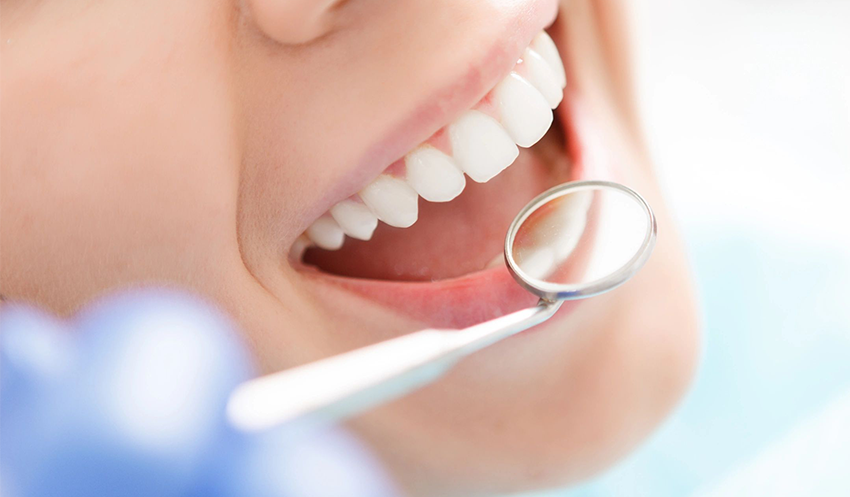Dental health is important due to a number of factors. It can be defined as the hygiene of all the parts of our mouth; teeth, tongue, gums and an internal surface of the cheeks. The good health of all these parts has immense importance in your overall health and confidence. Good oral health translates to good overall (physical and mental) good health.
All medical content on this site, including this guide and other product reviews, is written by our team of experienced writers and researchers. All writers from The Toothbrush Expert are recommended and reviewed in the industry. You support us through our editorially chosen links, which earn us commission. Learn more
All of our picks have the American Dental Association (ADA) Seal of Acceptance.
Why you need good dental hygiene?
You need good dental hygiene because it can help you keep your teeth and gums healthy. Regular brushing removes plaque, which is a yellow layer of bacteria on your teeth and makes your teeth look whiter and brighter. It also stimulates your gum to help prevent gum diseases. Flossing, on the other hand, cleans all the food debris stuck in between your teeth and areas of your mouth where your toothbrush may not reach easily.
An effective dental hygiene also includes regular dental checkups. It is a key component of oral hygiene to visit your dentist twice a year or after every six months to get your mouth checked and for new product recommendations. Your dentist can easily detect cavities from your mouth and deal with them. This also helps them to take action on time. It saves you from costly dental checkups.
Regular mouthwashes are also a part of good dental hygiene. You need them because they remove the bad odor from your mouth and all the bacteria stuck on your tongue, cheeks, and gums more efficiently and softly than toothbrushes.
Moreover, a good diet is also an eminent part of dental health. It makes sure your teeth stay stronger and prevents gum diseases as well. A required intake of vitamin C can easily prevent gingivitis as it makes your gums stronger and prevents them from bleeding whenever you brush your teeth.
How teeth affect your health?
Your teeth can affect your oral health in a number of ways. As the condition of your teeth worsens, they become prone to cavities and tooth decays. Bacteria easily attach to them. They make your teeth weaker. You are not able to chew with them properly and face constant pain. Their poor condition leads to a number of diseases like periodontitis, diabetes, heart diseases, rheumatoid arthritis, lung conditions, and obesity. As you cannot chew properly, you don’t eat a lot of food and the requirements of your body aren’t fulfilled which makes you weaker and leads your body a number of health risks.
To what problems can poor oral health lead?
Infections that start in your mouth can lead you to major body diseases. Poor oral health can lead to several problems such as:
Periodontitis
When bacteria store itself on your teeth, the chances of gum infections are increased to a higher level. As your immune system senses the infection, it takes action which makes your gums inflamed. Long term inflammation and the chemicals it releases can eat away your gums and bones that hold your teeth in place.
Diabetes
Due to a lack of insulin, your body struggles to process sugar. Periodontal diseases or poor oral health makes it more difficult for your body to produce and use insulin. If your teeth are infected, and the sugar level in your blood is high, it will lead to the growth of infection in all parts of your body, especially your mouth. This cycle can get out of control easily.
Heart Disease
According to multiple types of research, ninety-one percent of heart patients also suffer from periodontal diseases and mouth infections. Sixty-six percent of people without heart diseases suffer from periodontitis. Hence, there is a strong connection beyond similar risk factors like obesity, smoking, etc. Inflammation in the mouth may cause inflammation in the blood vessels. This increases the chances of a heart attack in a heart patient by allowing a decreased inflow of blood between the heart and the rest of the body parts. It also causes an increase in blood pressure.
Osteoporosis
This disease also leads to weakness in your bones. Some experts say that this affects more women than men and affects the long bones in arms and legs. Women with osteoporosis are more likely to have gum diseases than women who don’t.
Rheumatoid Arthritis
Treating periodontal diseases can lead to ease in pain caused by arthritis. Arthritis patients are also at a higher risk of catching periodontal diseases.
What can you do to keep your dental health in shape?
You can take a number of steps to improve your dental health. We have prepared a list of some actions which you can take to improve the health of your mouth.
- Stop smoking or using products which include tobacco in them
- Eat a balanced diet
- Avoid sugary snacks
- Rinse your mouth after each meal
- Brush at least two times a day
- Visit your dentist after every few months
- Have sealant applied to your child’s teeth
- Use mouthwash
- Floss whenever you brush
- Use good quality toothpaste and toothbrushes
- Chew sugarless gums
What are the signs of poor dental health?
There are a lot of symptoms of poor dental health. We have listed some of them.
- Bleeding of gums
- Pain in gums
- Plaque or tartar build-up on teeth
- Tooth decay
- Sensitivity
- Loose teeth
- Infections that cause pain in the mouth
- Swelling and tenderness
- A receding gumline
- Bad breath
- Poorly aligned teeth
If you face any of these problems, please visit your dentist to get them diagnosed and dealt on time, otherwise, they can lead to major problems.
Conclusion
To avoid all the problems associated with your mouth, you need to practice the best oral hygiene and make a dental routine for yourself. It will make you healthier, sharper, and confident. We hope we covered all of your problems and questions, if you still have some, please visit your dentist. They will give you an insight on your dental health, tell you why dental health is important, and help you improve it.

Dr Michael Jones is the proud founder of The Toothbrush Expert. He has been working as a dentist for 21 years now. Besides his work as a dentist, Michael wants to help people to find the right dental products. His goal is to provide everyone with honest expert reviews on all kinds of dental care products.

